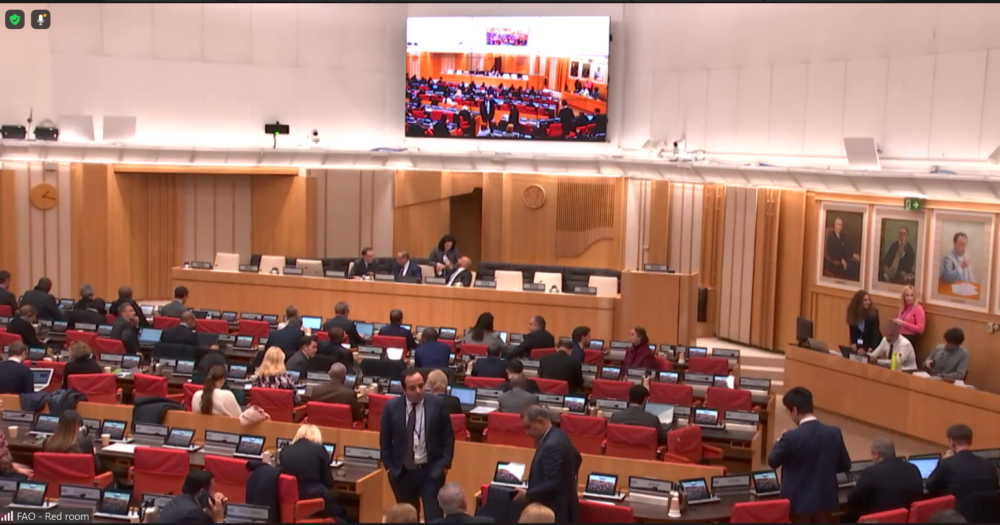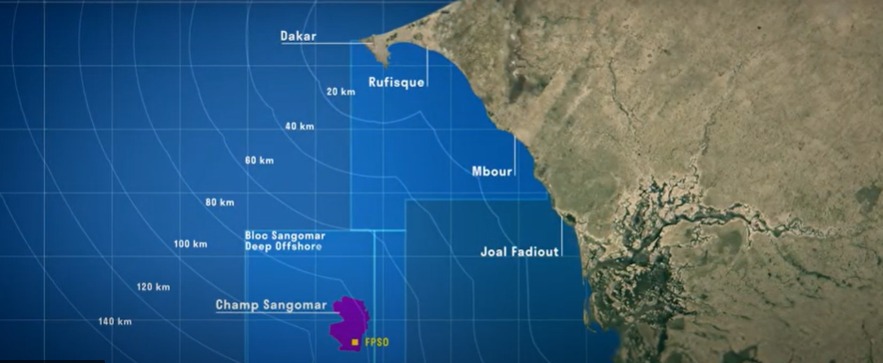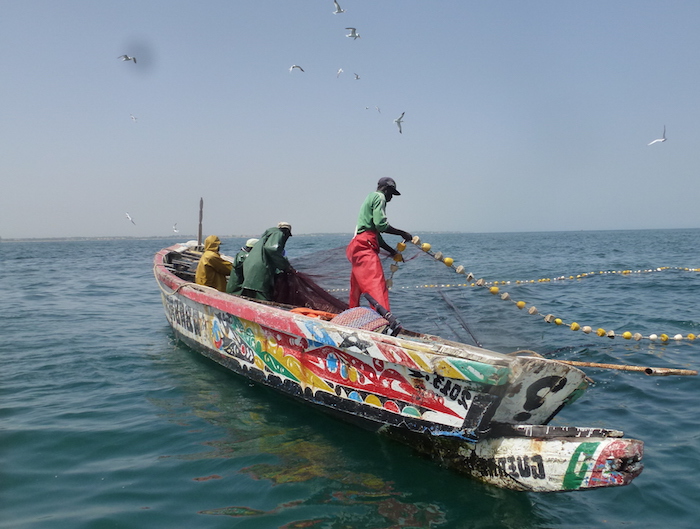The sustainable management of fisheries resources in West Africa, particularly shared stocks such as sardinella, is crucial to the region’s food security and economic development. The Confédération Africaine des Organisations Professionnelles de la Pêche Artisanale (CAOPA) is working to set up joint commissions in various countries, including Senegal, Mauritania, Gambia and Guinea-Bissau, to improve the management of these resources.
This article explores the prospects and challenges of this sub-regional development plan, focusing on the criteria of sustainability, regional cooperation and the participation of local communities.
Importance of sub-regional management
Small-scale fishing in West Africa is an essential source of protein and income for millions of people. Small pelagics, such as sardinella, are particularly important for the food security of coastal populations. However, overexploitation of resources, illegal, unreported and unregulated (IUU) fishing, and the impacts of climate change are threatening the sustainability of these stocks.
The United Nations Convention on the Law of the Sea (UNCLOS) provides a legal framework for the management of marine resources, but it has largely neglected small-scale fishing. The establishment of joint commissions for the management of shared stocks is intended to fill this gap by promoting concerted, sustainable management of fisheries resources.
Retrospective
 At the FAO Committee on Fisheries meeting in Rome in 2011, CAOPA argued for regional management of small pelagic, stressing the need to prioritize sustainable small-scale fishing. Thanks to these efforts, CAOPA succeeded in drawing the attention of the FAO and the Sub-Regional Fisheries Commission (SRFC).
At the FAO Committee on Fisheries meeting in Rome in 2011, CAOPA argued for regional management of small pelagic, stressing the need to prioritize sustainable small-scale fishing. Thanks to these efforts, CAOPA succeeded in drawing the attention of the FAO and the Sub-Regional Fisheries Commission (SRFC).
It has also been involved in initiatives aimed at strengthening regional cooperation. In particular, the SRFC’s request to the International Tribunal for the Law of the Sea (ITLOS) to clarify the responsibilities of coastal States and flag States in the fight against IUU fishing is a significant step towards better management of fisheries resources.
Objectives of the joint committees
The main aim of the joint commissions is to ensure the conservation of fisheries resources while optimizing their use. This includes the scientific evaluation of stocks, the implementation of management measures based on the best available data, and the promotion of sustainable fishing practices.
According to Article 61 of UNCLOS, “the coastal State shall, taking into account the best scientific evidence available, take appropriate conservation and management measures to ensure that the living resources in its exclusive economic zone are not depleted as a result of overexploitation“.
Regional coordination
Regional coordination is essential for the effective management of shared stocks. Article 63 of UNCLOS stipulates that “where the same fish stock or stocks of associated species occur in the exclusive economic zones of two or more coastal States, such States shall endeavour, directly or through appropriate sub-regional or regional organizations, to agree on measures necessary to coordinate and ensure the conservation and development of such stocks“.
The joint commissions will facilitate this coordination by harmonizing management policies and strengthening cooperation between countries.
Combating IUU fishing
IUU fishing is a major threat to the sustainability of fish stocks. The joint commissions will play a key role in combating these illegal practices by promoting participatory monitoring and facilitating cooperation between professionals.
Challenges and prospects
One of the major challenges is the systematic underestimation of artisanal fishing catches. This often leads to policies that favor industrial fleets, to the detriment of artisanal fishermen. The joint commissions will need to put in place more accurate and inclusive data collection systems to better assess actual catches and adjust policies accordingly.
Opaque negotiations
The opacity of negotiations to grant access to foreign fleets has often led to the over-exploitation of resources. Joint commissions should promote transparency and the inclusion of artisanal fishing communities in the decision-making process. This could include the active participation of artisanal fishermen’s representatives in discussions and the establishment of regular consultation mechanisms.
Capacity building
West African countries often lack the technical, financial and human resources to manage fisheries resources effectively. The joint commissions will need to focus on building local capacity through training, partnerships with scientific institutions and access to modern technologies for participatory fisheries monitoring.
Strategies for successful implementation
The participatory approach is essential to the success of the joint commissions. It is crucial to include small-scale fishermen in the planning and implementation of management policies. This will ensure that the measures adopted are adapted to local realities and enjoy the broad support of the stakeholders.
Use of modern technologies
 The use of modern technologies can considerably improve the management of fisheries resources. For example, satellite surveillance systems can help detect and prevent IUU fishing.
The use of modern technologies can considerably improve the management of fisheries resources. For example, satellite surveillance systems can help detect and prevent IUU fishing.
The establishment of joint commissions for the management of shared stocks in West Africa represents a significant step towards sustainable small-scale fishing. By adopting a participatory approach, using modern technologies and strengthening regional cooperation, these commissions can help to overcome the current challenges and ensure the sustainability of fisheries resources.
Thanks to these concerted efforts, small-scale fishing can continue to contribute to food security and poverty eradication in the sub-region.
Mamadou Aliou DIALLO


